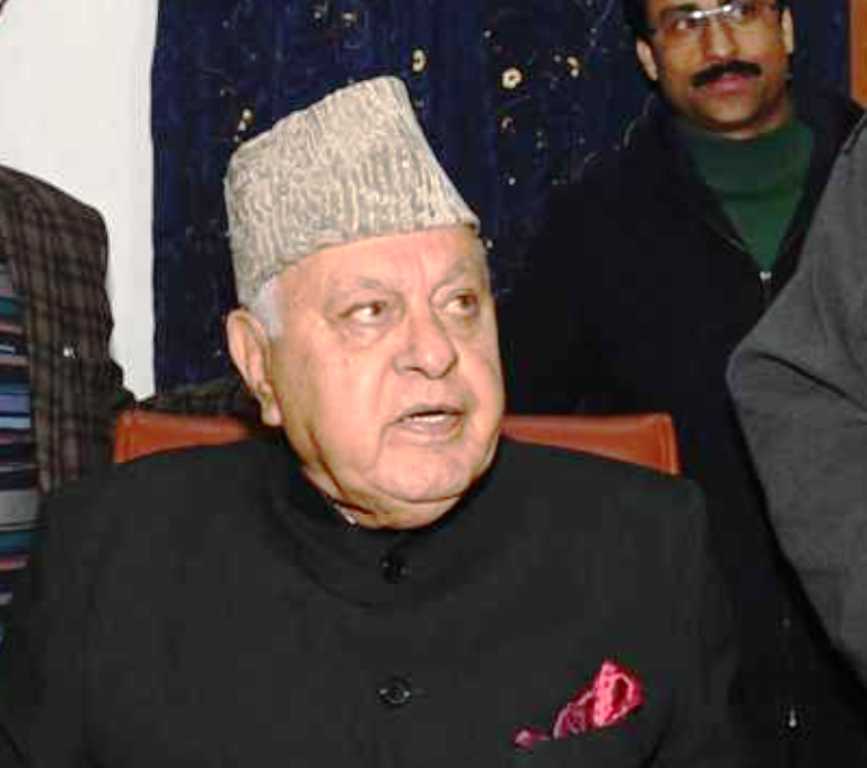SRINAGAR: In the next one year, 1000 km of degraded forests would be revived, Chief Secretary announced while setting the target for the forest department, an official spokesman said.
 Dr Arun Kumar Mehta urged the forest department to replenish the denuded forest cover, increase plantation outside forest areas and repair the neglected water bodies using both traditional ecological knowledge and modern practices in convergence with the MGNREGA to kick-start a virtuous cycle of good soil health, increased land productivity, food security and improved livelihoods in J&K.
Dr Arun Kumar Mehta urged the forest department to replenish the denuded forest cover, increase plantation outside forest areas and repair the neglected water bodies using both traditional ecological knowledge and modern practices in convergence with the MGNREGA to kick-start a virtuous cycle of good soil health, increased land productivity, food security and improved livelihoods in J&K.
Hailing the departmental initiative ‘Van se Jal –Jal se Jivan’, the chief secretary said the campaign has to be focused more in areas of water stress in J&K and the views of the local people should also be sought in making this programme a success.
Urging the department to achieve the target of plantation of 1.3 crore plants set for this year, he said there is also a need to focus plantation in vulnerable areas, particularly on the highways where green cover can help in slope stabilization and prevent landslides.
PCCF, Mohit Gera informed that out of a total of 20194 sq km of the forest area in J&K, around 2250 sq km forest area has degraded while further saying that the department on average restores 100-200 sq km of the degraded forest area in a year.
The Chief Secretary directed the department to restore 1000 sq km forest area during the next year in convergence with the funds available under the labour component under MGNREGA.
It was informed that the campaign Har Gaon Hariyali’ has been well received by the people at large and the panchayats in the UT are locked in a healthy competition of outdoing one another on the issue of the plantation.
PCCF informed that the department has set a target of planting 1.3 cr plants this year and it is on course to meeting the target.
The department informed that out of 3700 traditional village ponds identified in the UT, requiring repair and reconstruction, 57 ponds have been taken up under UT Capex for repair during this financial year and so far 37 ponds have been reconstructed.
The Chief Secretary directed the department to repair all 3700 ponds within the next six months in convergence with MGNREGA.
He said repair and rejuvenation of these ponds will recharge the groundwater and improve the whole ecosystem of lives and livelihood in the villages.
Saying that the practice of the people feeding monkeys on the national highways/tourist places has to be stopped, the chief secretary said the department needs to improve enforcement thorough heightened vigil and imposition of fines to deter people from doing so as it causes unnecessary accidental deaths of monkeys.
Dr Mehta said the department needs to put a high premium on climate mitigation and ensure that vehicular pollution is effectively checked and the violators are suitably penalized.
He asked the department to ensure that visibly polluting vehicles from outside the UT are not allowed entry at the Lakhanpur border.
The Chief Secretary directed the department to erect hoardings/billboards at Lakhanpur border carrying unequivocal directions from the department for the interstate commuters that the vehicles not conforming to the pollution norms will not be let into J&K.
Holding plastic litter on the roadsides and in and around forest areas as a terrible pollutant and eyesore, he asked the department to mount a campaign titled- ‘Say No to Plastics’ in the media advising the people against the use of plastics.
Dr Mehta also asked the department to spearhead a plastic cleanliness campaign on war footing across J&K.
Appreciating the conservation works carried out in the surroundings of the wullar lake, the chief secretary said the unrivalled beauty of the lake needs to be celebrated and asked the department to hold wullar lake festivals thrice- during spring, summer and autumn- in a year.
Dr Mehta lauded the effort of the department in starting 12-day training for 20 youth of the Kishtwar district for Eco Guides and asked the department to connect them with the youth clubs and the Mission Youth for availing incentives to buy trekking gear like tents, other camping material etc.
He said post-training, these youth can use the trekking gear as guides for the tourists on the identified trekking routes in this region and earn a living for themselves.
Dr Mehta said this will also spur the growth of wildlife tourism in the region.














